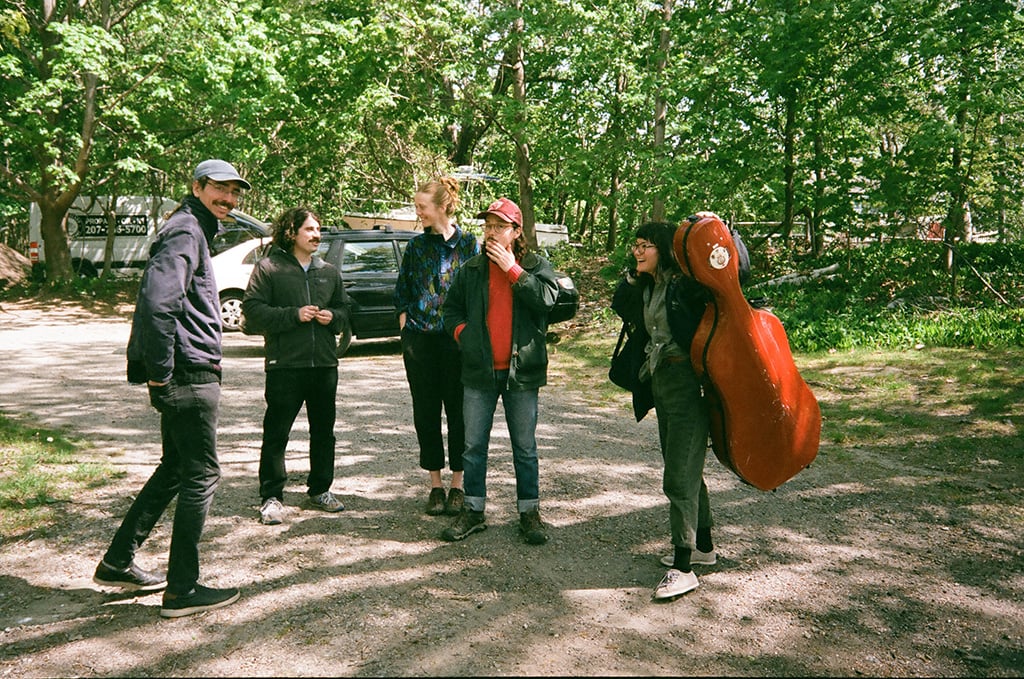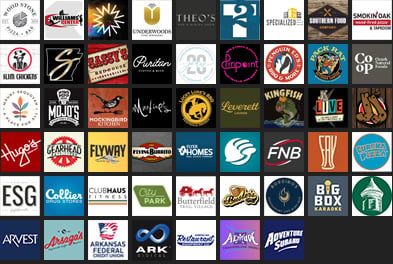 (Courtesy/Hour)
(Courtesy/Hour)Philadelphia instrumental group Hour will perform in Fayetteville this week.
The indie chamber crew is set to visit Likewise Community at 7 p.m. Wednesday, March 13 as part of the first concert of the year for the Trillium Salon Series.
The instrumental ensemble demonstrates a compositional ethos grounded in rote arrangement and group improvisation while aiming for breathy timbral intricacy and carefully balanced melodicism.
Hour fluctuates in size and scope around composer and multi-instrumentalist Michael Cormier-O’Leary (Friendship, 2nd Grade, Dear Life Records), who provides a clear yet open-ended harmonic framework and an ambitious ear towards evoking atmosphere, both expansive and intimate.
The nonprofit Trillium series is in the midst of its first crowdfunding campaign which aims to raise $10,000 by the end of the month. Online donations are doubled when given through this link.
En route to perform at SXSW, this week’s performance from Hour features a four-piece ensemble of clarinet, violin, electric percussion and guitar. For more information, or to RSVP, visit https://www.trilliumsalonseries.com/.
Tell me a little about the spark that ignited Hour in West Philly and what those initial days were like?
Michael Cormier-O’Leary: I started the group in the summer of 2017, with Peter Gill on drums, Matt Fox on viola, Jason Calhoun on synth and violin, Abi Reimold on electric guitar, Evangeline Krajewski on synths, and me on electric guitar. I had been listening to Dirty Three a lot, and had accumulated a lot of guitar compositions from the previous 5 years. I began to imagine what they’d be like with other people playing them, and the music fell together pretty effortlessly once I got the band together. It felt like we were playing hymns, a song form I’ve long been entranced by. My compositions leave a lot of open space for everyone to contribute ideas while providing a consistent form to move within.
The West Philly scene at that time was centered around a now defunct house venue called All Night Diner. We played our first show in that basement and I was terrified because our music sounded nothing like anything anyone else was doing. That is what made our community so special though– everyone had pretty distinct projects, but we all played together anyway and embraced the differences. So everyone was really hyped about our first show, maybe because watching six people play quietly is thrilling.
Will Kennedy and Joey DeGrado, who ran All Night Diner, also ran a label called Sleeper Records, and agreed to release our first record Tiny Houses in early 2018. That support helped to keep up momentum that first year, and we ended up playing a lot of shows and touring around the midwest in support of that record. After that, we had a second record’s worth of material ready, so we recorded that and it came out that same year with another amazing tape label, Lily Tapes and Discs. The music across Tiny Houses and Anemone Red are like the two faces of Janus, distinct but inextricably linked. Feels wild to think about now, but I’m really glad we released them both in the same year. It was a lot of music, but we were so motivated to share this sound we had landed on as quickly as possible.
From Bill Frisell to Scott Walker to ECM records, your influences are vast. What drew you to creating your sounds and talk a bit more about some of these influences and why you were drawn in?
A lot changed for me when I first heard the classical guitar playing of Andrew York. I had never heard anyone play guitar in that way, and it really took my breath away. His compositions felt so humble and compassionate, even though his virtuosity was fully on display. Listening to him encouraged me to really grow as a guitarist. I think I stumbled upon my own style in attempting to reach for what I was hearing on his recordings.
Bill Frisell was also a game-changer. The first album I heard of his was Disfarmer, which took many listens to sink in but when it did I became obsessed. I was so impressed by how few notes he could play while still making such expansive music. That, and how across countless records, his style was always instantly recognizable without ever becoming distracting (see the song Forthright by Vic Chesnutt for the most transcendent example of this).
I owe Tom Waits a lot musically. I grew up listening to him, and I know that he is responsible for a lot of my musical taste. My favorite songs of his are the swoony, romantic ones. No doubt his song Tom Traubert’s Blues is what led me to appreciate the music of Scott Walker. One time, someone saw Hour play and said we reminded them of Scott Walker’s backing band. That was high praise, if not a little absurd, but with Ease the Work, I think we’ve begun to earn the compliment.
You’re headed to SXSW – have you been before?
I played there once with Friendship, the country band I play drums in. I think it was in 2017 or 18. The actual festival was not really my scene, but it was a treat to hang out with all the good Austin people and other bands that had come down for the event. We played some good shows and some not very good ones (most comically one in a boutique clothing store where people were actively shopping around us). This time around, I’m looking forward to meeting a few of the artists who are on Dear Life Records – the label I run – for the first time in person.
Your new album’s out in April. What was its starting point and what’s the through line in this recording?
After we released our first two records, I thought a lot about how I wanted to follow them up. I discovered Ernest Hood’s Neighborhoods while recording Anemone Red, so for a while I was hoping to do something like that (a sonic postcard of sorts). But a lot of time passed, and meanwhile I started Dear Life Records to release my solo songwriter records, on top of regularly recording and touring with Friendship. Then 4 years went by and I realized I was no closer to having a new Hour record. But I had been writing and demoing all sorts of ideas, so I started taking stock of what I had accumulated. KC & Clem was the first song I prepared, which was developed from a 2018 voice memo.
I was living in Maine and began teaching the new material to folks in the band who lived in the northeast, namely Evan McGonagill (cello), Erika Nininger (piano), Keith Nelson (clarinet) and Peter McLaughlin (drums). Playing with this configuration reignited my drive to finish the record, and rehearsals proceeded from there. I’d travel to Philly, NYC, and Boston to rehearse with different parts of the group for about a year before we recorded. All in all, thirteen musicians played on the record, ten of whom performed live at the initial session on Peaks Island in Maine. It was a high wire stunt, and I’m stunned we pulled it off.
What are some current listening obsessions you have right now? Describe them and why you’re drawn in.
I’m in the van and starting to feel a little carsick. I think a lot of what I wrote above illuminates what draws me into a record. These three records are incandescent and speak so loudly for themselves. One’s a film soundtrack, one should be a film soundtrack, and the last is the work of one of my favorite contemporary songwriters.

